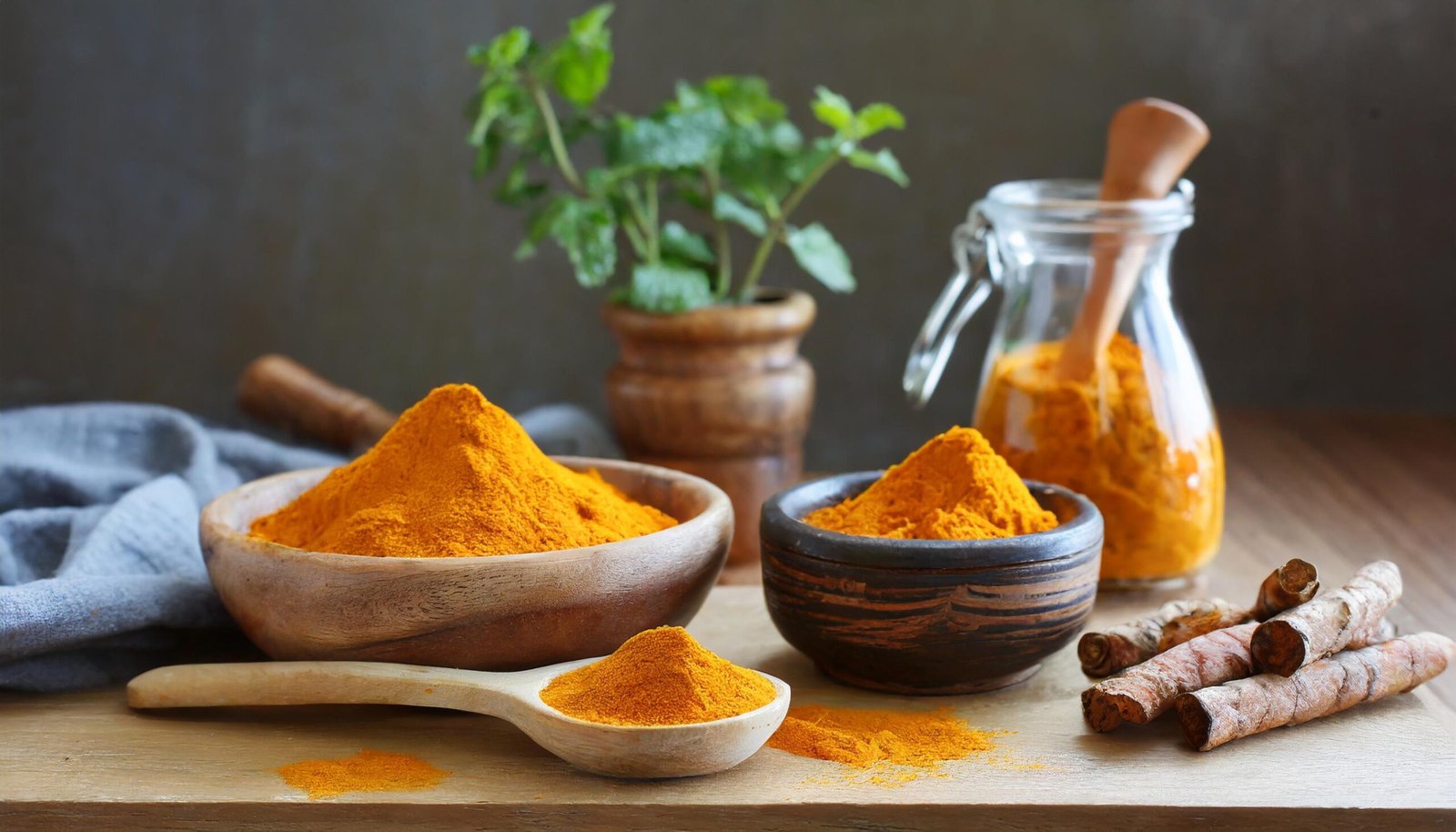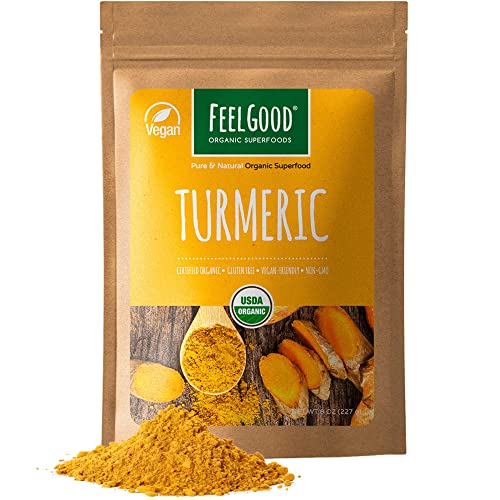Turmeric, a vibrant golden spice commonly found in kitchens around the world, has been celebrated for centuries not only for its distinctive flavor in culinary dishes but also for its numerous health benefits. From ancient Ayurvedic practices to modern-day wellness routines, turmeric has earned a reputation as a powerhouse of therapeutic properties. Let’s delve into the various uses, health benefits, and beauty applications of this golden gem.
Uses of Turmeric
The use of turmeric is multifaceted, spanning culinary, medicinal, and cosmetic realms. In the kitchen, it’s a staple spice, imparting a warm flavor and vibrant color to dishes, especially prevalent in curries and stews. Medicinally, turmeric’s active compound, curcumin, is renowned for its anti-inflammatory and antioxidant properties, potentially aiding in conditions like arthritis and promoting overall well-being. Additionally, turmeric has found its place in skincare, with face masks harnessing its anti-inflammatory prowess for a radiant complexion. This versatile spice’s diverse applications showcase its significance in promoting both internal and external health benefits.
- Culinary Delight: Turmeric is a staple in many cuisines, adding a warm and slightly bitter flavor to dishes. It’s a key ingredient in curries, stews, and soups, giving them both color and depth of taste.
- Medicinal Marvel: Beyond the kitchen, turmeric has a rich history in traditional medicine. Its active compound, curcumin, is believed to possess anti-inflammatory, antioxidant, and antimicrobial properties.
- Anti-Inflammatory Aid: Turmeric is most commonly used for its anti-inflammatory properties. It may help alleviate inflammation in the body, making it a potential remedy for conditions such as arthritis.
- Digestive Support: The spice is known to stimulate the production of bile, aiding in digestion. Many people use turmeric to ease digestive discomfort and promote a healthy gut.
- Antioxidant Boost: Curcumin, the main component of turmeric, acts as a potent antioxidant, helping to neutralize free radicals and protect the body from oxidative stress.
[As an Amazon Associate, I earn from qualifying purchases at no additional cost to you.]
Health Benefits of Turmeric
The health benefits of turmeric are extensive, primarily attributed to its active component, curcumin.
Anti-Inflammatory Powerhouse: Turmeric is renowned for its potent anti-inflammatory properties, making it a natural remedy for conditions involving inflammation, such as arthritis. By modulating inflammatory pathways, it may help alleviate joint pain and stiffness.
Antioxidant Defense: Curcumin acts as a robust antioxidant, neutralizing free radicals that contribute to oxidative stress and cell damage. This antioxidant prowess may assist in preventing chronic diseases and supporting overall cellular health.
Digestive Support: Turmeric stimulates bile production, aiding digestion. It can be beneficial for those experiencing digestive discomfort and may contribute to maintaining a healthy digestive system.
Heart Health Promotion: Studies suggest that turmeric may support cardiovascular health. It may enhance blood vessel function, reduce inflammation in the arteries, and potentially lower the risk of heart disease.
Brain Boost: Curcumin’s ability to cross the blood-brain barrier has sparked interest in its potential cognitive benefits. Research indicates it may help delay or reverse brain diseases and age-related declines in brain function.
Anti-Cancer Properties: Some studies propose that curcumin may have anti-cancer properties, inhibiting the growth of cancer cells and preventing the spread of tumors. However, more research is needed in this area.
Immune System Support: Turmeric’s immune-modulating effects may contribute to a strengthened immune system, helping the body fend off infections and illnesses.
It’s important to note that while turmeric offers these potential health benefits, individual responses can vary. Incorporating it into a well-balanced diet and consulting with a healthcare professional for personalized advice is recommended, especially for those with specific health concerns or conditions.
How to consume Turmeric
Incorporating turmeric into your diet is not only delicious but also a convenient way to harness its health benefits. Here are some creative and simple ways to include turmeric in your daily meals:
Curries and Stews: Turmeric is a staple in curry dishes, providing both flavor and color. Add it to vegetable, chicken, or lentil curries for an aromatic boost.
Golden Milk: Create a soothing and nutritious beverage by making golden milk. Combine turmeric with warm milk, a pinch of black pepper, and a touch of honey for a comforting and anti-inflammatory drink.
Roasted Vegetables: Sprinkle turmeric over roasted vegetables like cauliflower, sweet potatoes, or carrots to add a warm and earthy flavor.
Turmeric Rice: Infuse your rice with turmeric for a vibrant and subtly spiced side dish. It pairs well with various main courses.
Smoothies: Blend turmeric into your morning smoothie for an added health kick. Pair it with fruits like pineapple, mango, or banana to mask the taste if needed.
Eggs: Add a pinch of turmeric to scrambled eggs or omelets for a colorful and flavorful twist to your breakfast.
Salad Dressings: Create a turmeric-infused dressing by mixing it with olive oil, lemon juice, and your favorite herbs. Drizzle it over salads for both taste and health benefits.
Tea: Brew a cup of turmeric tea by steeping turmeric powder or slices in hot water. Enhance the flavor with a hint of ginger or a squeeze of lemon.
Remember, combining turmeric with black pepper can enhance its absorption due to the presence of piperine. Additionally, using fresh turmeric root or high-quality turmeric powder ensures you get the maximum benefits. Experiment with these methods to find the ones that suit your taste preferences and easily incorporate turmeric into your daily meals.
Side Effects and Considerations
While turmeric is generally considered safe when consumed in moderate amounts, there are some side effects and considerations to be aware of:
Staining: Turmeric has a vibrant yellow-orange color that can stain surfaces, clothing, and even your skin. Exercise caution when using it in skincare routines or while cooking.
Digestive Sensitivity: In some cases, consuming high doses of turmeric may lead to digestive issues such as bloating or gas. Starting with small amounts and gradually increasing can help minimize any potential discomfort.
Blood-Thinning Effect: Turmeric may act as a mild blood thinner. If you are on blood-thinning medication or have a bleeding disorder, it’s essential to consult with a healthcare professional before incorporating large amounts of turmeric into your diet.
Interactions with Medications: Turmeric can interact with certain medications, such as blood thinners, diabetes medications, and drugs that reduce stomach acid. If you are on medication, it’s advisable to consult with your healthcare provider before using turmeric supplements.
Gallbladder Issues: Individuals with gallbladder problems may want to exercise caution with turmeric, as it can stimulate the production of bile.
Allergic Reactions: Some people may be allergic to turmeric. If you experience symptoms like itching, swelling, or difficulty breathing after consuming turmeric, seek medical attention.
Pregnancy and Breastfeeding: While small amounts of turmeric in cooking are generally considered safe during pregnancy and breastfeeding, high doses or supplements may not be recommended. It’s crucial to consult with a healthcare professional for personalized advice.
Iron Absorption: Turmeric may interfere with the absorption of iron. If you have iron deficiency anemia or rely on iron supplementation, it’s advisable to separate the intake of turmeric and iron-rich foods or supplements.
Individual responses to turmeric can vary, and it’s essential to be mindful of any adverse reactions. If you have pre-existing health conditions or concerns, seeking guidance from a healthcare professional before making significant changes to your turmeric intake is recommended. Turmeric is a valuable spice, but like any supplement, it’s best enjoyed in moderation and as part of a balanced diet.
———————-
Turmeric, with its vibrant color and rich history, is a versatile spice that extends far beyond the realms of the kitchen. From promoting joint health to contributing to radiant skin, the benefits of turmeric are varied and well-established. As with any supplement or ingredient, it’s essential to use turmeric mindfully, considering individual health conditions and consulting with healthcare professionals when in doubt. Embrace the golden goodness of turmeric, and let it become a wholesome addition to your holistic well-being journey.







![NatureWise Curcumin Turmeric 2250mg | 95% Curcuminoids & BioPerine Black Pepper Extract | Advanced Absorption for Joint Support [2 Month Supply - 180 Count]](https://m.media-amazon.com/images/I/41d-lYnffRL._SL500_.jpg)




